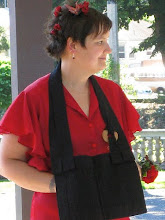At first, when I saw the fifth precept written as, “don’t drink or take drugs”, I felt some surprise at seeing a precept expressed in a way that sounded to me like a commandment from the Judeo-Christian faith I had grown up with. After I saw the fifth precept written as advice to “Not cloud the mind”, the meaning for it gained greater clarity. It isn’t just an admonishment to avoid substances that might cause one to break other precepts, but advice to avoid anything that encourages us to be "clouded"; distracted and not present in each moment.
There is the obvious pain and suffering caused by by the misuse of alcohol and drugs. I grew up watching my step-father's functional alcoholism, hearing terrible stories of my father's alcoholic rages, and feeling deep anxiety when family gatherings encouraged drunken comments. All my life my father and step-dad chose to cling to their addictions to alcohol, cigarettes, and prescription drugs. That clinging hastened their early deaths by weakening their bodies beyond the ability to be repaired. For as many times as they each may have said they loved me in real life each of their deaths left me with the pain of knowing that the addictions were more important.
A clear as the danger of the misuse of intoxicants is to me, when this precept expanded beyond a simple directive around using alcohol or drugs I was able to clearly see the other ways my family preferred clouded, distracted minds. Eating to avoid the pain, dissatisfaction, and rage that simmered just below the surface of every family gathering. The gathering itself providing the excuse, as well as the means, to cloud the mind with food. Shopping, acquiring more things and more debt in a game of gratification, competition, and distraction. Gossiping, which itself is a separate precept, was also a way of clouding the mind along with television, romance novels, and endless, jealous scheming.
In my family food was an especially acceptable means of distracting the mind from the pain and dissatisfaction of the present. I watched the women, and often the men, in my family transition to obesity as adults regardless of how thin they had been as children. Regardless of any of the constant urging to be "skinny", to diet constantly, and to have stylish clothing that showed off a good figure everyone was encouraged to eat excessively at any gathering. Even if there wasn't encouragement, no one would think it unusual to want to have "just one more" piece of homemade candy even if you were already full beyond words. It was always just fine to want to go out for a sundae, indulge in "consumer therapy" (shopping), or indulge in a whole day of shopping and eating treats because the day had been stressful, upsetting. It was perfectly fine to complain about why the day had been stressful but there was never any direction on how to cope with it beyond eating, shopping, or other forms of immediate pleasure. Without any skills to truly cope with distressing emotions and situations I grew up to suffer greatly from depression, anxiety, and obesity by the time I was in my mid-20s.
After several years of cultivating mindfulness in my approach to food I've overcome the obesity and the health risks that have plagued the women in my family. By rejecting the food culture I was raised with I have created the space within which I can learn how to truly address the depression and anxiety caused by nearly 30 years of untreated PTSD. In smaller ways too I can continue to practice mindfulness; like buying fairly traded, organic chocolate and finding the cost of those luxuries causes me to reflect more deeply as to how I might turn to them as a means of distraction. Am I merely craving the sweetness of chocolate because I’m irritated, frustrated or bored? Am I seeking the clouding of my mind, choosing a momentary pleasure rather than stay with emotions that make me uncomfortable? The fifth precept invites me to reflect more deeply and try to bring light & understanding to places in my life where I am mindlessly seeking distraction.




No comments:
Post a Comment